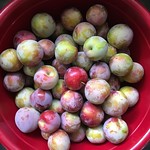Egg
If there were an award for the world's most multifaceted food, it might be tough to argue against the humble chicken egg. An object of gastronomic reverence, a nutritional powerhouse, and a symbol imbued with historical and cultural significance, the egg has a story as rich as the yolk within its shell.
Picture the fowl being domesticated in the lush landscapes of Southeast Asia around 7500 BCE, and later, in the majestic realms of ancient Egypt and Greece. The Romans, with their fine-tuned epicurean sensibilities, marveled at the versatility of the egg, a fact duly noted in Apicius's "De re coquinaria," an early cookbook that has survived the ravages of time. Jumping forward several centuries, Ovid, in his Metamorphoses, metaphorically hatched the world from a 'cosmic egg', portraying the egg not just as a mundane object of consumption but also as an emblem of life and creation.
The egg’s nutritional virtues are as diverse as its cultural references. A source of high-quality protein, containing a complete set of the nine essential amino acids our bodies cannot produce, it comes in a biodegradable package. It's a treasure trove of vital nutrients including vitamin D, various B vitamins, selenium, and choline - a vital component for neurological health. Even though its reputation was slightly tarnished by the cholesterol scares of the 70s, a reevaluation of how dietary cholesterol impacts heart health has helped reclaim the egg's nutritional halo.
Commonly used in a myriad of cuisines worldwide, eggs offer incredible versatility. They can be enjoyed in their simplest forms - boiled, scrambled, poached, or fried - or used as a key ingredient in more complex dishes such as omelettes, quiches, and frittatas. In baking, eggs are fundamental for leavening, binding, and providing moisture. Authors like Julia Child in "Mastering the Art of French Cooking" and Michael Ruhlman in "Ratio: The Simple Codes Behind the Craft of Everyday Cooking" underline the crucial role of eggs in various culinary techniques, demonstrating their importance beyond just being a dietary staple. The egg, with its unique blend of history, nutritional richness, and culinary versatility, truly stands as a testament to the rich tapestry of human food culture.
Highlights
- Egg is an excellent source of Choline
- Egg is a good source of several nutrients, including Iodine, Selenium, Riboflavin, and Vitamin B-12
 eat a plum
eat a plum